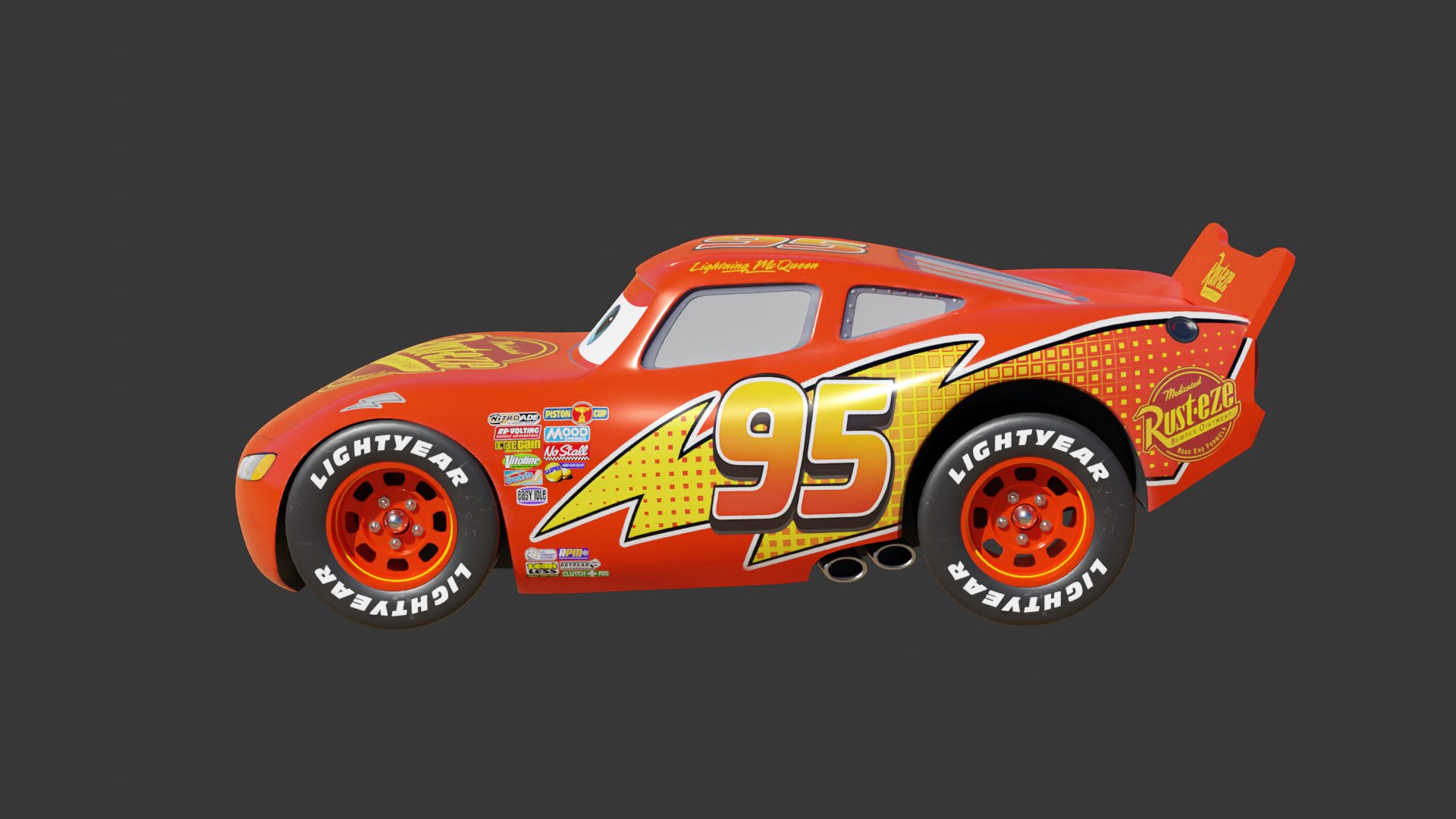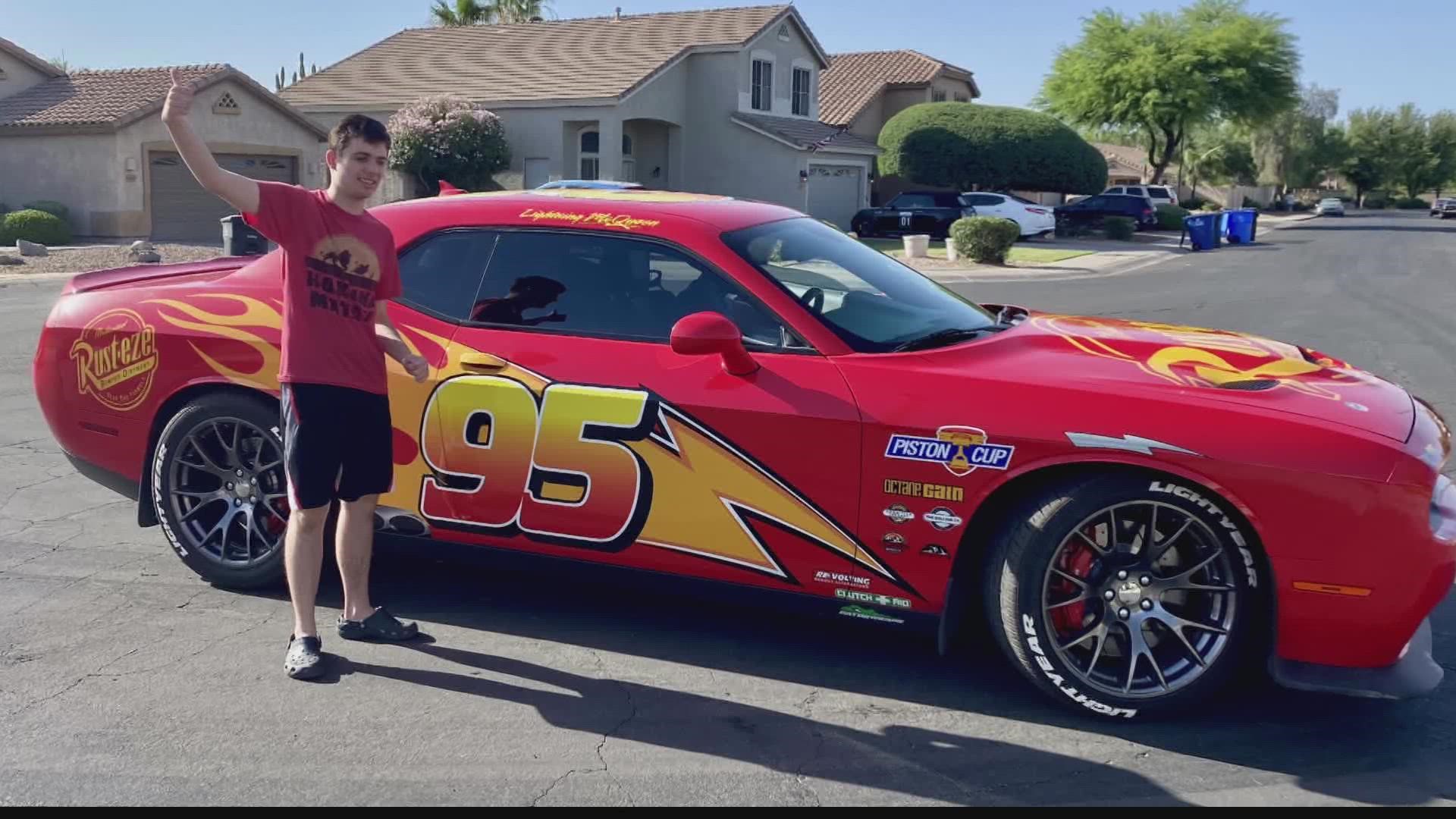The world of racing and animated movies has always been a fascinating intersection of reality and fantasy. The character Lightning McQueen from Disney's "Cars" has captured the hearts of millions worldwide. But is McQueen a real car? This question has intrigued fans for years, and in this article, we will dive deep into the truth behind this beloved character.
Lightning McQueen is more than just a character in a movie; he represents speed, ambition, and the spirit of competition. Fans often wonder if the car that inspired this character exists in real life, and if so, what makes it so special. This article aims to answer all these questions and more.
Join us on a journey to explore the origins of Lightning McQueen, the real-life cars that inspired his design, and the impact he has had on the automotive and entertainment industries. Whether you're a fan of the "Cars" franchise or a car enthusiast, this article will provide valuable insights and answers.
Read also:Affordable Housing In Queens A Comprehensive Guide To Accessible Living
Table of Contents
- Biography of Lightning McQueen
- The Inspiration Behind McQueen
- Design and Features of McQueen
- Is McQueen a Real Car?
- Comparison with Real Cars
- Impact on the Automotive Industry
- Technological Advancements in Racing Cars
- Popularity and Cultural Significance
- The Future of Racing Cars
- Conclusion
Biography of Lightning McQueen
Lightning McQueen is a fictional character in the "Cars" franchise, voiced by actor Owen Wilson. He is a red race car with the number 95 on his body, symbolizing his determination and speed. McQueen's journey from a rookie racer to a world champion is a central theme in the series.
Below is a table summarizing key details about Lightning McQueen:
| Name | Lightning McQueen |
|---|---|
| Species | Race Car |
| Color | Red |
| Number | 95 |
| Origin | Disney Pixar's "Cars" (2006) |
| Voice Actor | Owen Wilson |
The Inspiration Behind McQueen
Real-Life Race Cars
The design of Lightning McQueen is inspired by several real-life race cars, particularly those from NASCAR. The character's sleek design and vibrant color scheme reflect the aesthetics of modern racing vehicles. Some of the cars that influenced McQueen's appearance include:
- NASCAR Nextel Cup cars
- 1999 Chevrolet Monte Carlo SS
- 2006 Chevrolet Impala SS
Design Elements
McQueen's body incorporates features from these cars, such as:
- Aerodynamic shape
- Wide tires for better grip
- Custom decals and sponsor logos
Design and Features of McQueen
Lightning McQueen's design is a blend of functionality and aesthetics. His creators at Pixar paid meticulous attention to detail, ensuring that every aspect of his appearance aligns with the characteristics of a high-performance race car. Here are some key features:
- Engine: A powerful V8 engine that provides exceptional speed and acceleration.
- Body: A lightweight yet durable aluminum frame that reduces weight without compromising strength.
- Wheels: Custom-designed tires with advanced tread patterns for optimal performance on the track.
Is McQueen a Real Car?
While Lightning McQueen is a fictional character, his design is based on real-life race cars. In reality, no car exactly matches McQueen's specifications, but several vehicles come close. The closest real-world equivalent would be the NASCAR stock cars used in professional racing circuits.
Read also:Financing A Funeral In Bellevue Comprehensive Guide To Planning And Funding
According to a report by NASCAR, these cars are engineered to achieve speeds of up to 200 mph, making them some of the fastest production vehicles on the planet.
Comparison with Real Cars
Speed and Performance
When comparing McQueen to real race cars, one of the most significant factors is speed. While McQueen's top speed is not explicitly stated in the movies, it is implied to be around 200 mph, similar to NASCAR vehicles.
Design and Aesthetics
In terms of design, McQueen's vibrant red color and distinctive sponsor logos are reminiscent of real race cars. However, his anthropomorphic features, such as eyes and a smiling face, set him apart from actual vehicles.
Impact on the Automotive Industry
The "Cars" franchise has had a significant impact on the automotive industry, inspiring a new generation of car enthusiasts. Many manufacturers have capitalized on this popularity by producing McQueen-themed merchandise, including toys, models, and even full-sized replicas.
According to a study by Statista, the global market for automotive-themed toys reached $10 billion in 2022, with "Cars" merchandise contributing significantly to this growth.
Technological Advancements in Racing Cars
The evolution of racing cars has been driven by technological advancements in materials, engineering, and aerodynamics. Modern race cars, like those that inspired McQueen, incorporate cutting-edge technologies such as:
- Carbon fiber composites for lightweight construction
- Advanced aerodynamic designs to reduce drag
- Hybrid powertrains for improved efficiency
These innovations have pushed the boundaries of what is possible in motorsports, paving the way for faster and more efficient vehicles.
Popularity and Cultural Significance
Lightning McQueen has become a cultural icon, symbolizing the spirit of competition and the pursuit of excellence. His popularity extends beyond the "Cars" franchise, with fans of all ages embracing his character and message.
Social media platforms like Instagram and Twitter are filled with fan art, videos, and discussions about McQueen, highlighting his enduring appeal. According to data from Instagram, there are over 5 million posts tagged with #LightningMcQueen, showcasing the character's global reach.
The Future of Racing Cars
As technology continues to advance, the future of racing cars looks promising. Electric and hybrid vehicles are becoming increasingly popular, offering a sustainable alternative to traditional gasoline-powered cars. Companies like Tesla and Formula E are leading the charge in this area, with many experts predicting that electric race cars will dominate the industry in the coming years.
Lightning McQueen's legacy will undoubtedly continue to inspire future generations of racers and engineers, pushing the boundaries of what is possible in the world of motorsports.
Conclusion
In conclusion, while Lightning McQueen is not a real car, his design and characteristics are inspired by some of the most advanced race cars in the world. The "Cars" franchise has had a profound impact on the automotive industry, inspiring countless fans and influencing the design of modern vehicles.
We invite you to share your thoughts and opinions in the comments section below. Do you think McQueen could exist in real life? What features would you add to make him even faster? Don't forget to explore our other articles for more insights into the world of racing and automobiles.



